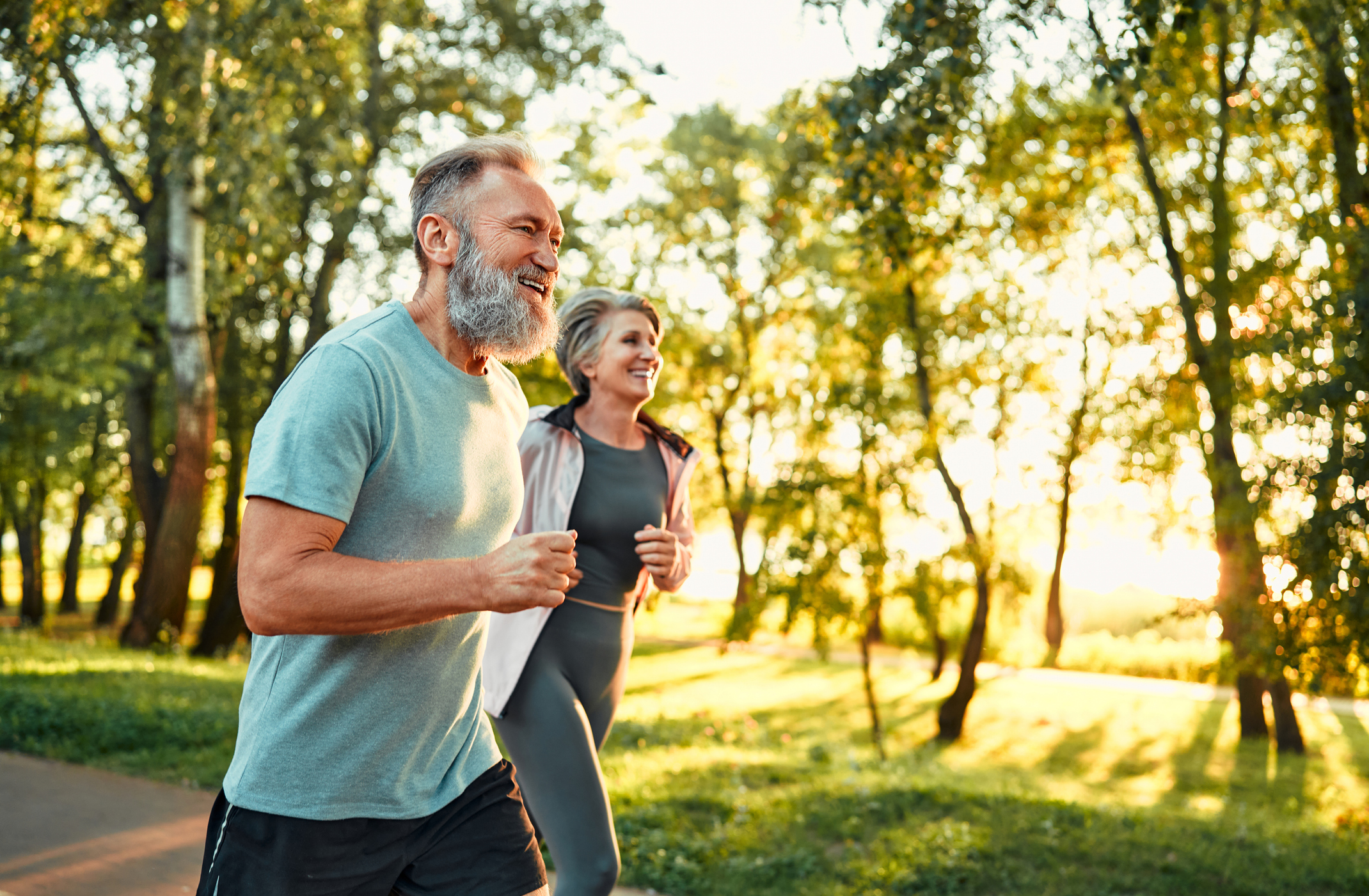Get Easy Health Digest™ in your inbox and don’t miss a thing when you subscribe today. Plus, get the free bonus report, Mother Nature’s Tips, Tricks and Remedies for Cholesterol, Blood Pressure & Blood Sugar as my way of saying welcome to the community!
The longevity debate: To run or not to run

For years, there’s been a debate when it comes to whether or not running long distances is good for your health.
On the one hand, research published in the British Journal of Sports Medicine found that people who run have a 27 percent lower risk of dying from all causes than people who don’t run.
Yet on the other, it’s been found that a high proportion of all exercise-induced cardiac events occur during marathons, especially in men 35 years of age and older.
So how are you to decide if running is a health boost or a health danger for your?
Research that looked at the lifespans of elite-level runners just might have the answer…
Proof going all out has benefits
The analysis delved into the public health data of the first 200 people to run a mile in under four minutes during the 1950s, 60s and 70s.
The findings might just make you want to lace up your running shoes.
The research showed that these elite-level runners, known for pushing their respiratory, cardiovascular, metabolic, and musculoskeletal systems to the max, lived almost five years longer than the general population.
And five years is nothing to sneeze at!
What’s more, this isn’t the first time endurance athletes have been shown to have an edge when it comes to living longer…
In fact, a 2018 study demonstrated that the first 20 runners to run a mile in under four minutes lived an average of 12 years beyond the general life expectancy.
And in 2022 Harvard scientists showed that people who push themselves past the limit, exercising above and beyond the recommended levels, benefit from a 30 percent lower risk of death. This is a 10 percent lower risk of death than seen in those who only exercise enough to meet activity guidelines.
Additionally, studies of Tour de France cyclists, Olympic athletes and rowers have backed up the idea that elite athletes enjoy longer lifespans than the general population.
Why running is good for your health
Of course, you’re probably wondering how putting in the time to run long distances could add years to your life.
Here’s the answer from University of Alberta cardiologist Stephen Foulkes and his colleagues:
“While we could not determine the cause of death for the majority of runners, studies reporting on Tour de France cyclists and cohorts of Olympians (that include middle to long-distance runners) suggest the longevity effects are primarily mediated by decreased rates of cardiovascular and cancer-related mortality.”
In other words, what most of us consider to be ‘extreme exercise’ could be exactly what’s needed to help us live longer.
Build up slowly
But despite these benefits, it’s important to remember to not dive right into mile-long runs or longer.
Instead, you should work your way up slowly.
Good rules of thumb to exercise more safely include:
- Increase your running time and distance slowly – You can start with as little as five to 10 minutes of exercise before building up.
- Don’t forget to warm up – At the beginning of each run, start by taking it slow by walking or jogging to get your heart rate up.
- Take time to cool down – Just like your warm-up, cooling down is all about your heart. However, instead of ramping things up, a cool down lets your heart rate return to normal.
While running could be the key to living a longer life, give your body time to adapt to your exercise program and you’ll find it easier to stick with.
Editor’s note: There are perfectly safe and natural ways to decrease your risk of blood clots including the 25-cent vitamin, the nutrient that acts as a natural blood thinner and the powerful herb that helps clear plaque. To discover these and other secrets of long-lived hearts, click here for Hushed Up Natural Heart Cures and Common Misconceptions of Popular Heart Treatments!
Sources:
Elite Runners Live Years Longer Than The Average Person, Scientists Find – Science Alert














